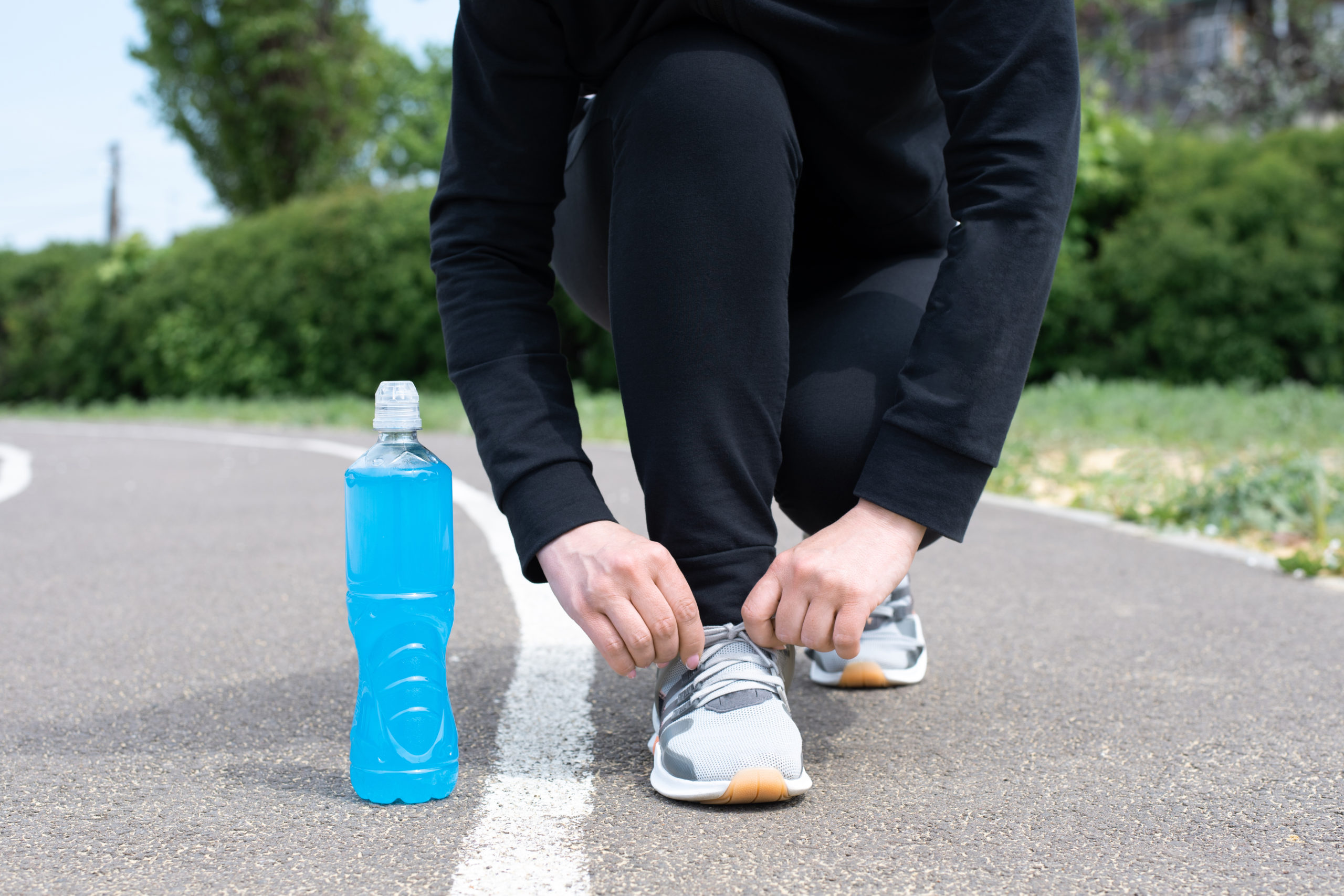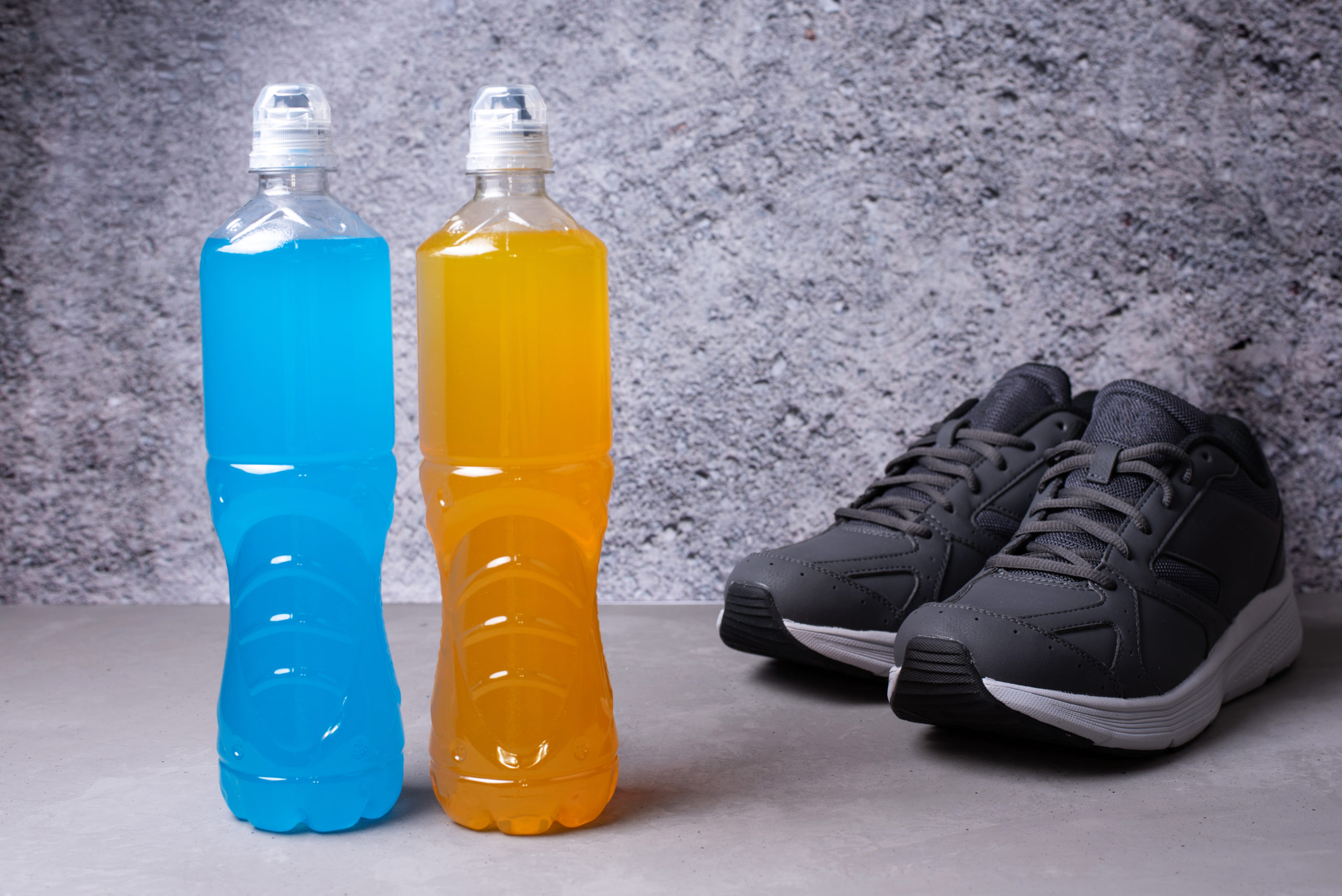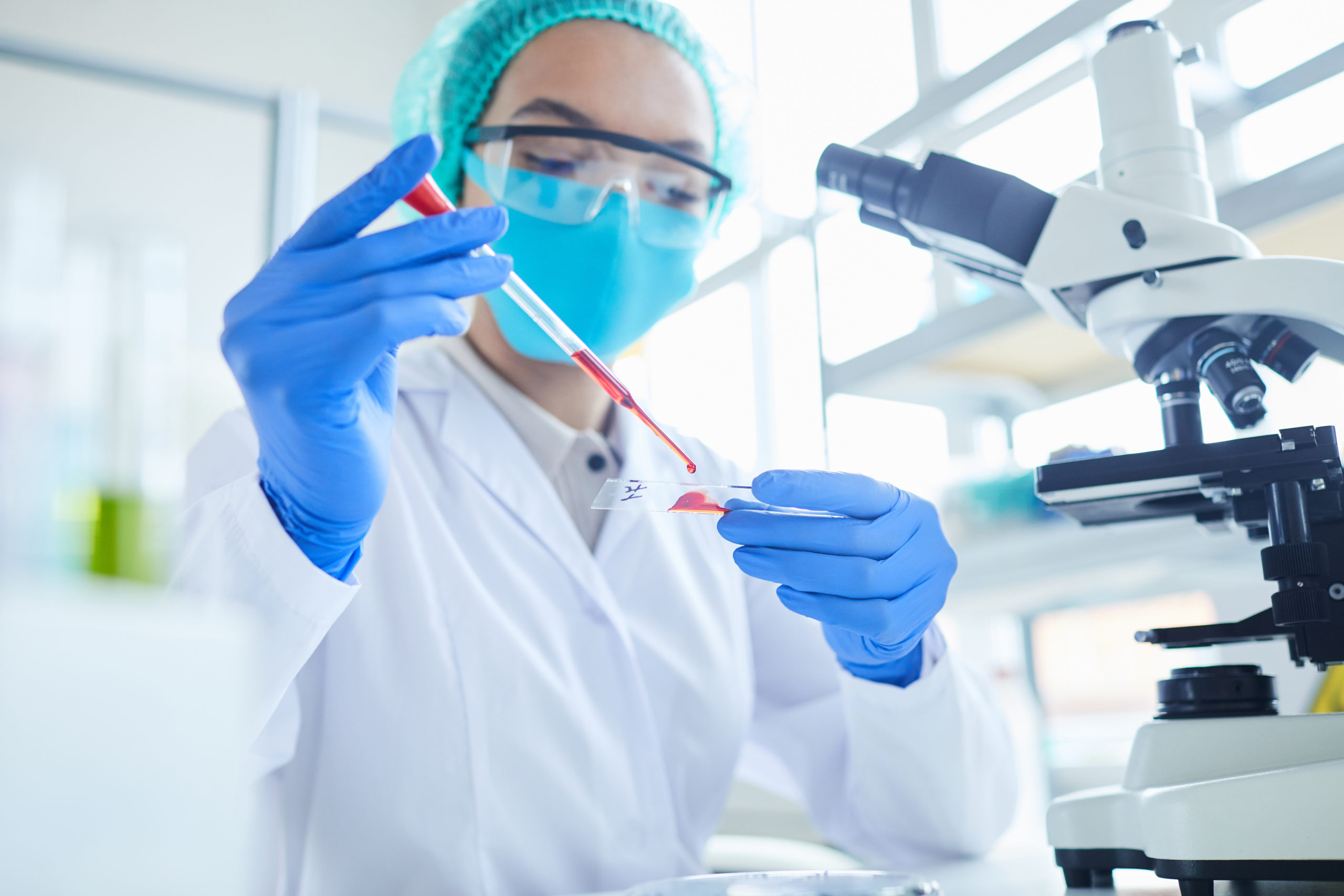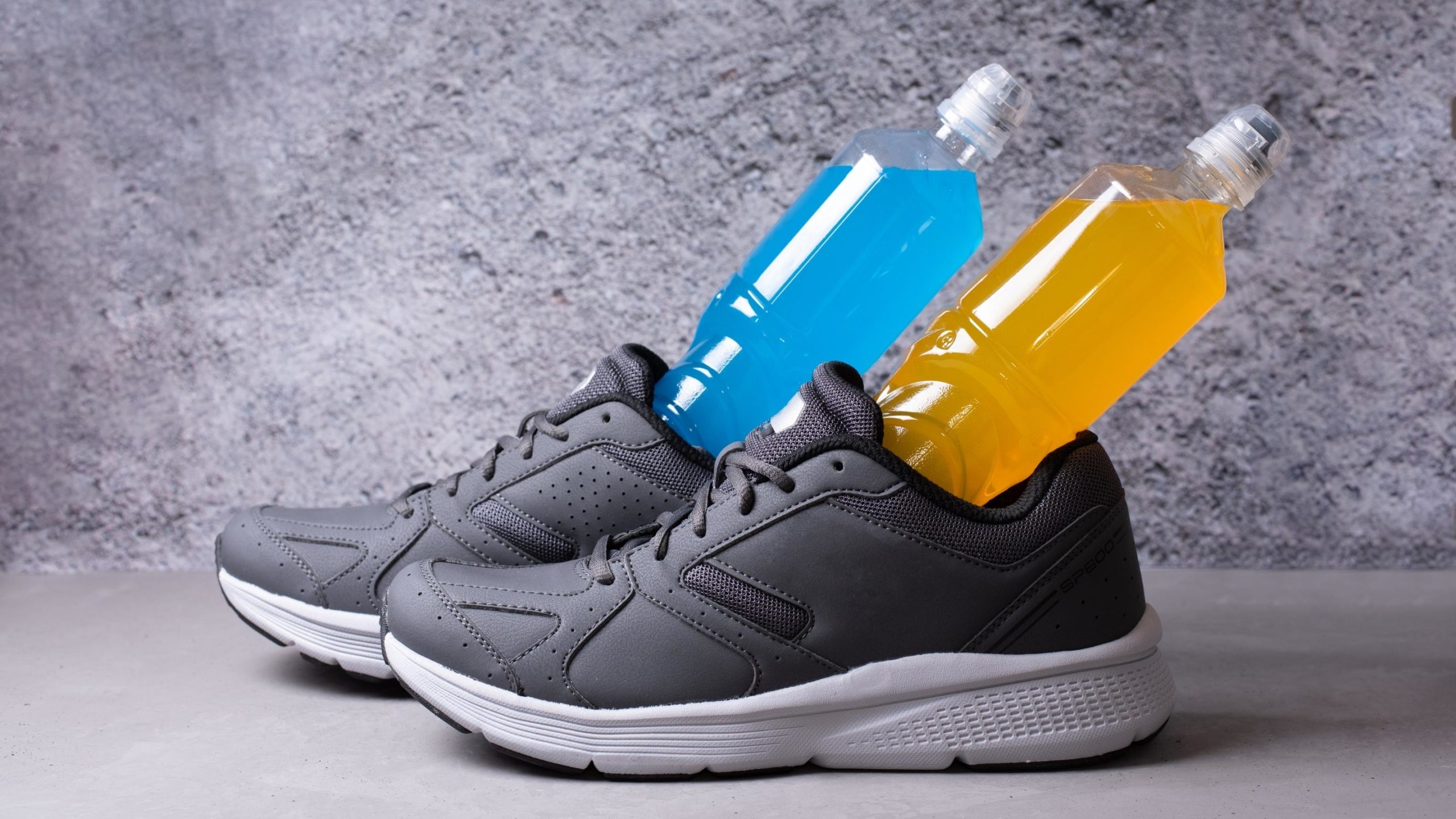Athletes, fitness enthusiasts and individuals who want to get the most from exercise should know the answers to the oft-repeated question, “What are electrolytes and how do they work?”
This is because electrolytes are necessary in the proper functioning of the human body, from keeping your body hydrated to contracting your muscles.
Key Point: Proper dosing regimens for electrolytes are key to optimal exercise and efficient recovery afterwards.
Table of Contents
- How Electrolytes Impact Vital Body Functions
- How Do Electrolytes Work?
- What are the Symptoms of Low Electrolytes?
- How Do Electrolytes Aid in a Workout?
- Natural Sources of Electrolytes Versus Supplements
What Is an Electrolyte?

Electrolytes are compounds that produce ions and conduct electricity when dissolved in a solution like water. These substances have a natural positive of negative electrical charge – or positive or negative ions – that influence many of our body’s essential processes.
The human body consists of about 60% water, which means nearly all cells and fluids in our bodies contain electrolytes. This is also among the reasons why electrolytes are known as essential minerals because sufficient amounts must be present to maintain good health.
Without the right balance of electrolytes, your body can become ill! And at the very least, you’ll experience less than optimal athletic performance if your electrolytes are out of whack.
Takeaway: Electrolytes are crucial components of sports nutrition and overall health.
How Electrolytes Impact Vital Body Functions
Electrolytes are essential in the maintenance of many vital body functions including:
- Ensuring good muscle function including muscle contractions
- Maintaining optimum nervous system function by allowing the brain to send electrical signals via your nerve cells to other cells in your body;
- Preventing dehydration by maintaining fluid balance in your body and plasma;
- Regulating blood pH level or the acid base balance within the normal range of 7.35-7.45;
- Stabilizing blood pressure levels;
- Assisting in blood clot formations and in building new tissues
Due to their pervasive presence in the human body, electrolyte levels are also used in the diagnosis of a wide range of medical conditions including acute and chronic diseases. In fact, a routine physical examination will often include a measurement of electrolyte levels.
Key Points: Electrolytes do more than just boost your athletic performance, they play vital roles in many crucial bodily functions.

5 Common Examples of Electrolytes
The common electrolytes that you should be aware of–particularly when you’re at a high risk of electrolyte imbalance due to exercise, illness or injury–are as follows.
1. Sodium
Also known as sodium chloride or table salt, sodium has several essential functions in the maintenance of good health including helping in:
- Controlling the amount of fluid in the cells and in the blood; and
- Ensuring that the nerves and muscles are working properly;
When either the sodium concentration and blood volume becomes too high, the body via the kidneys increase sodium excretion so that normal blood volume can be achieved. When either becomes too low, the body increases its blood volume.
2. Potassium
Yet another essential electrolyte is potassium, a mineral with many vital functions including the maintenance of optimum:
- Fluid balance
- Heart function, particularly a normal heartbeat
- Muscle function including muscle contractions
- Nervous system function including nerve impulses
- Waste disposal
3. Calcium
As an electrolyte, calcium also carries an electric charge when dissolved in blood and other body fluids but most of our body’s calcium doesn’t contain an electric charge (i.e., uncharged). About 99% of calcium in the body is in the bones but the blood and cells also contain the electrolyte.
Calcium is essential in the following body functions:
- Normal heart rhythm
- Mineralization of the bones and teeth
- Muscle function particularly muscle contractions
- Nerve impulse transmission
- Hormone secretion
- Blood clotting
4. Magnesium
Like all electrolytes, magnesium also carries an electrical charge and works with sodium, calcium and potassium, among other electrolytes, in the maintenance of body functions including:
- Energy production
- Bone development
- Blood pressure regulation
- Balance of fluids including water
- Acid base balance (pH levels)
- Nutrient movement in and out of cells
- Waste movement out of cells
For these reasons, magnesium is a vital electrolyte in the proper functioning of the muscles, nerves and brain as well as the heart.
5. Phosphate
Phosphate is a compound of phosphorus and oxygen, and it’s an essential electrolyte because of its crucial importance in many body functions. While phosphate also has an electric charge when dissolved in blood and other body fluids, most of it is uncharged.
While phosphate’s main function is the formation of teeth and bones, it also has other vital functions including:
- Muscle contractions
- Carbohydrate and fat usage
- Production of protein necessary for muscle growth and energy production
- Growth, repair and maintenance of tissues and cells
- Nerve signaling
- Kidney function
- Normal heart rhythm
Key Points: Sodium, Potassium, Phosphate, Magnesium, and Calcium are 5 of the most common electrolytes on the market. They each aid many important bodily functions.
How Do Electrolytes Work?

Think of the ions in electrolytes traveling through salt water as the ions in electricity as it travels through a power line.
With electrolytes, its ions transport nutrients and other chemical compounds in and out of the body’s cells. These chemical compounds are responsible for a wide range of body functions, from energy production to waste disposal via the kidneys.
Helpful Analogy: Electrolytes are sort of like energy-conductors, responsible for powering the energy exchange between cells–much like how rivers carry minerals across vast distances.
Do You Really Need Electrolytes?
Yes, of course! When your cells lose electrolytes and your electrolyte levels drop to abnormal levels, you will experience multiple health issues.
But it’s also important to prevent higher-than-normal electrolyte levels! While the kidneys remove excess electrolytes and excretes them via urine, the body will still suffer symptoms when electrolyte levels remain too high for too long.
Use Electrolytes in Moderation: Poor kidney health and other health problems may lead to the body removing excess electrolytes at a slower rate, causing a build over time if you’re taking too much of them.
What are the Symptoms of Low Electrolytes?
An electrolyte imbalance, usually manifesting as low electrolyte levels, can be caused by dehydration due to vomiting or diarrhea, excessive heat, or over-exertion during exercise.
Medical conditions, such as eating disorders and kidney disease, and injuries like severe burns are also common causes of electrolyte imbalance. But mild electrolyte imbalance usually doesn’t have observable symptoms.
In general, moderate to severe electrolyte imbalance can cause the following symptoms:
- Body fatigue or malaise
- Heart problems like fast or irregular heartbeat
- Muscle weakness and cramps
- Numbness and tingling
- Convulsions
- Headaches
- Dizziness
- Mental confusion
But each electrolyte has specific symptoms, too, when it reaches abnormally low levels.
Low Sodium
Low sodium chloride levels (hyponatremia) can cause:
- Vomiting or diarrhea
- Restlessness and irritability
- Muscle weakness, cramps or spasms
- Seizures, even coma
Low Potassium
Hypokalemia is caused by potassium deficiencies that can cause symptoms like:
- Feeling of fatigue
- Muscle cramps or muscle weakness
- Abdominal pain including constipation
- Abnormal thirst combined with frequent urination
Tip: Ask your doctor about chloride potassium, a mineral supplement that prevents and treats potassium deficiencies.
Low Calcium
When your calcium levels reach low levels (hypocalcemia), you may experience the following symptoms:
- Confusion with possible changes in behavior, even depression and memory loss
- Muscle issues like twitching and spasms
- Numbness and tingling
- Scaly skin, rough hair texture, and changes in the nails
Low Magnesium
Low levels of magnesium can be caused by chronic health conditions and the use of drugs like diuretic medications. Among its symptoms are:
- Loss of appetite
- Muscle spasms
- Nausea and vomiting
- Sleepiness or hyperexcitability
Low Phosphate
Muscle weakness is usually the first symptom of low levels of phosphate (hypophosphatemia) but, over time, it can lead to the following symptoms:
- Weaker bones
- Altered mental state
- Muscle pain
Major Point: By paying attention to your symptoms, you might be able to reason-out which electrolyte warrants supplementation. But it’s always best to consult a doctor if your symptoms are severe.
How Do Electrolytes Aid in a Workout?

Remember that the human body consists of 60% water. But our bodies lose water and other body fluids through sweating, breathing and urination. These are processes that occur in our bodies at an accelerated rate during exercise.
By maintaining the right water balance during exercise, our bodies remain in optimum condition even with a certain acceptable amount of electrolyte loss.
- Obviously, what has been lost through sweat and urine must be replaced by food and fluids. This is known as electrolyte replacement during exercise and other strenuous activities.
- By drinking water and other fluids before, during and after your workout, you’re replacing the electrolytes that your body has lost.
- You’re also providing your body with fuel with which to produce energy, repair injured tissues, and build new muscles.
In doing so, your body becomes primed for more exercise in the future and the good cycle continues!
Key Point: Beyond aiding in vital bodily functions, electrolytes keep your body in peak performance throughout exercise and in the recovery process thereafter.
How Do We Test Electrolyte Levels in the Body?
Healthcare providers use a comprehensive metabolic panel in checking for electrolyte imbalances in their patients.
Think of the electrolyte panel as several blood tests in a single test wherein as many as seven electrolytes are measured in your blood. The most electrolytes tested in a blood panel include:
- Sodium
- Potassium
- Calcium
- Magnesium
- Phosphate
- Bicarbonate
The use of an electrolyte panel in detecting electrolyte imbalances involves a blood draw, which can be done in a blood testing lab, an outpatient clinic, or in a hospital. Your blood sample will be taken and then used for the blood test.
To make the blood draw easier, you should stay hydrated by drinking plenty of fluids – water is the best source – and avoiding nicotine for several hours before the procedure.
Key Takeaway: An electrolyte panel measures the amounts of the most important electrolytes in a given blood sample.
When Should You Consider an Electrolyte Panel?

By measuring electrolyte levels, the electrolyte panel can pinpoint possible medical conditions causing an individual’s range of symptoms.
These medical conditions can include:
- Kidney disease
- Liver disease
- Substance abuse disorders
- Cardiovascular disorders
- Dehydration caused by excessive diarrhea, vomiting or fever, which can deplete essential minerals in the body.
But water intoxication, or drinking too much water, can also result in electrolyte imbalance!
Kidney disease can be particularly worrisome since it can result in other health issues. Kidney stones and kidney failure are common diseases in the United States.
Liver disease, such as cirrhosis, and cardiovascular disease are also culprits of electrolyte imbalances, and the latter can even result in a cardiac arrest.
Key Point: If the blood test shows an electrolyte imbalance, it doesn’t mean that you have a health issue that needs medical treatment ASAP! Your doctor may order other lab tests depending on your medical history and current health condition.
Natural Sources of Electrolytes Versus Supplements
The best way of achieving and maintaining the right electrolyte balance is through healthy living!
Eating more healthy foods and drinking more water are strongly recommended since these are healthy habits that promote stable electrolyte balance throughout the day.
The 9 best foods for electrolyte balance include:
- Fresh fruits and vegetables like sweet potatoes, avocados and bananas
- Whole grains
- Pickled foods
- Cheese and dairy products
- Nuts and seeds like pumpkin and sunflower seeds
- Chicken and turkey
- Pork and beef
- Organ meats
- Fish and seafood
Table salt is also a vital component in a healthy diet since it’s the main source of sodium and chloride. Bicarbonate, also an electrolyte, is naturally produced by the body so there’s no need to add it to your diet.
Caveat: There are instances, such as when producing excessive amounts of sweat, when natural food sources of electrolytes will not suffice! In these cases, supplements are an excellent idea to increase electrolyte levels.
When Should You Take Electrolytes?

If you’re an athlete or you’re into rigorous workouts, you should consider taking electrolyte supplements! The amount of electrolytes lost during an intensive training regimen can result in an electrolyte imbalance that will not only affect your physical performance but your overall health.
But if you’re the type of person with a healthy diet and you’re not working out, then electrolyte supplementation isn’t necessary. You may only need it when you’re exercising – and only when it’s intense exercise.
Here are the specific circumstances when you can lose electrolytes faster than normal and, thus, must replace electrolytes through fluid intake.
- When you will exercise for more than an hour, particularly if it’s intense exercise.
- When you experience excessive sweating and, if you taste it, your sweat tastes salty. (If your skin has a thin layer of white, your body is likely excreting salt through your pores).
- When you will be exercising or performing other physical activities in hot, humid weather, whether you’re indoors or outdoors.
Key Point: The more strenuous the physical activity, the more likely it is that you’ll need to supplement with electrolytes.
There’s No Substitute for Good Hydration
Your body’s core temperature not only rises with extreme heat, but your sweat doesn’t evaporate in humid weather resulting in less body cooling. This can cause even more sweating and dehydration.
In these cases, you should stay hydrated to prevent dehydration that can cause muscle cramps, nausea and fatigue, among other symptoms. The best ways to do so are:
- Drink at least 17 ounces of water, sports drinks or other healthy liquids about two hours before your workout.
- Hydrate with 4-6 ounces of fluids every 15-20 minutes during your exercise session for sufficient hydration to your muscles. But you can drink more depending on the amount of sweat you’re producing and the environment (e.g., temperature).
- Drink water and other fluids after exercising, too, which will replace the electrolytes lost and help in your body’s recovery.
The rule of thumb is: Drink 20 ounces of fluid for every pound of water weight that you lose during exercise.
While water may be sufficient, you may want to consider sports drinks since these contain carbohydrates that not only provide energy but delay muscle fatigue. Electrolyte tablets are also great choices.
Conclusion: Optimal electrolyte intake and proper hydration will ensure that you get the most out of your exercise, and remain healthy throughout your daily routines.
